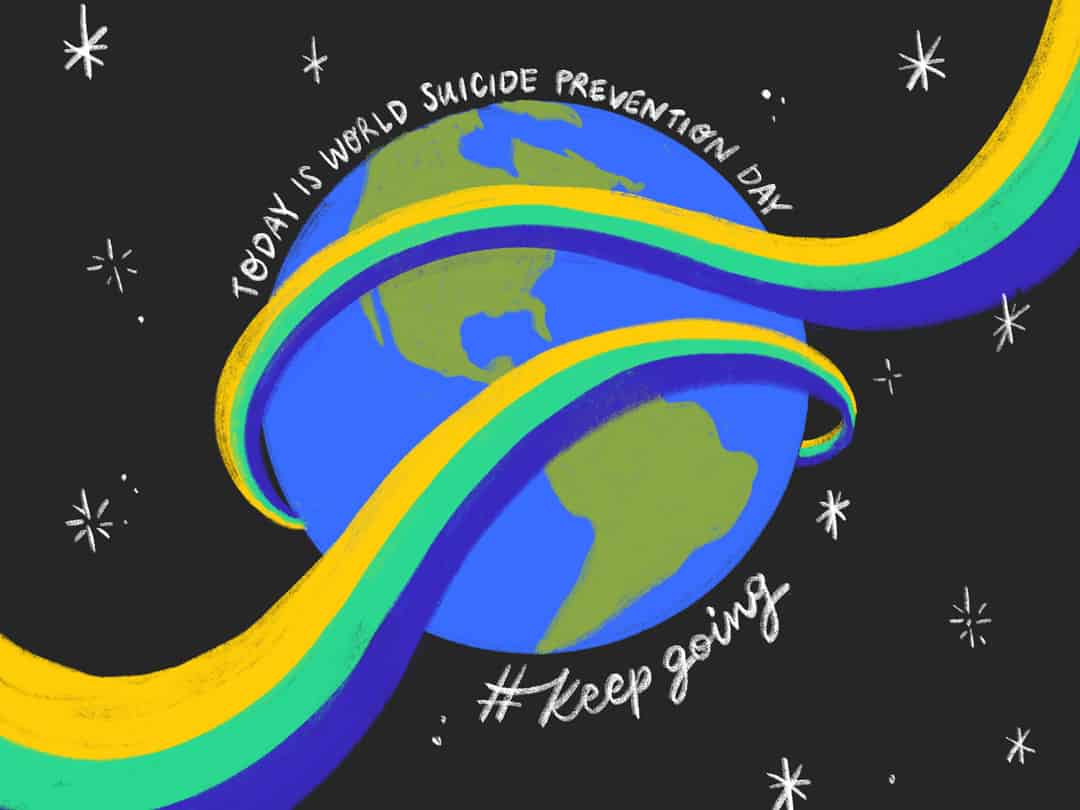Suicide remains the second most common cause of death for children, teens, and young adults, and it’s clearly alarming to hear a loved one talk about killing themselves. Many of us have lived our entire lives without seriously considering the idea of suicide, but for hundreds of thousands of teenagers and young adults, it’s a thought that crosses their mind more than once.
Different risk factors, mental health issues, and experiences can influence the decision to try and take one’s life, and it’s important to acknowledge and talk about these feelings in order to address them before they lead to action. It’s especially important to address the topic of suicide given today’s mental health climate.
COVID-19 has seen a spike in virus-related deaths, but also deaths of despair as a result of isolation, economic desolation, and general anxiety. For every completed suicide among teens, there are about 25 suicide attempts. While the risks and symptoms are not always obvious, there are often opportunities to recognize a teen’s troubling thoughts and help them find a better alternative to their pains and worries.
Why Teen Suicide Occurs
Teenagers and middle-aged adults are more likely to take their own life than children or the elderly. For children with traumatic and difficult beginnings, the teen years are often the years when the effects of those traumas manifest most strongly. Puberty is often also the onset for more severe symptoms of depression or general anxiety, and thoughts of suicide.
Many teens who contemplate suicide feel that they aren’t just in pain, but that they generally have nothing to look forward to. Even if moments and memories of joy serve to undermine that feeling in most people, a condition such as depression is so overwhelming in its hijacking of the mind that these memories have no chance of arguing against suicide.
Most people who have contemplated suicide and then survived the attempt feel gratitude immediately afterward, but in those few moments preceding their attempt, the mind is incapable of wrestling with anything except negative thoughts and self-denigration. Once the moment passes, however, a teen may be able to think themselves back into a neutral or happier state of mind.
Oftentimes, successful suicide prevention is about helping a teen find their way back towards that healthier state of mind by fighting back against their inner self-deprecation, and helping them find reasons to live just long enough for the passing urge to go away.
Suicide Risk Factors
The factors behind suicide are complex and vary greatly from teen to teen. While it’s impossible to detail every potential cause and factor, some of the most significant risk factors for teen suicide are:
-
- Socioeconomic factors (race, class, income)
- Physical health (chronic conditions may accelerate feelings of despair)
- Signs of depression and/or anxiety
- Psychosis
- Childhood or recent trauma
- Recurring stress and/or victimization (bullying)
- Regular or excessive substance use
- Reckless or uncharacteristic behavior
- Family history of suicide and/or depression
- Previous suicide attempts
Some important warning signs to watch out for include:
-
- Signs of self-harm or cutting
- Frequently discussing death, being preoccupied with death and ways to die
- Often feeling hopeless or worthless, or useless
- Social withdrawal
- Problems at school, inattentiveness
- Sudden weight loss or gain
Teens who consider suicide aren’t weak or cowardly. Instead, they are often beset with factors or conditions that make it much harder to withstand the pressures and circumstances they face, leaving them with an overwhelmingly bleak outlook that purposefully ignores all the positives in their life, and amplifies the dark.
Without a first-hand experience of depression and depressive thinking, it doesn’t serve to compare yourself or your outlook with a suicidal teen when discussing something like suicide or depression. Instead, offer support and help. Support and help are critical in suicide prevention.
How to Approach the Subject of Suicide
Don’t be afraid to address the subject to begin with. You may be worried about discussing suicide with a loved one out of fear that mentioning it will somehow make matters worse. But it’s doing the opposite – ignoring it – that can lead to the idea festering and growing unchecked. Simply providing a loved one with the opportunity to openly talk about how they feel and what they want to do can make a big difference right away.
Don’t make it about yourself or dismiss their concerns. Try to focus on listening and giving them questions to answer and making sure they know you want to understand why they feel the way they do. Sentences like “I had a tough time, but I got over it” or “why would you feel this way when you’ve got it so good in life?” only serve to shut down conversation and teach your teen that they can’t talk to you about how they really feel.
Don’t lose touch. If you feel that a loved one is at risk for harming themselves, one of the best things to do is try and be at their side as much as possible. Invite them to do more things with you. Spend extra time with them after school. Plan a trip. Do something mundane together like cook or grabbing groceries. Don’t let them feel isolated or alone.
Talk in earnest but prioritize compassion. If you haven’t tackled similar thoughts and experiences in the past, chances are you may not completely understand the way your teen feels, and that is alright. You can still be honest when discussing suicide with them, but always try to remember how they feel, and keep their feelings at the forefront of the discussion. Be compassionate, and make sure they understand that as a friend, relative, or parent, you love them first and foremost, and want to help them.
Other Resources
Ideally, you should consider speaking with your teen about visiting a mental health professional specializing in adolescents. If there is a chance that your teen’s thoughts are tied to a mood disorder or some other mental health condition, then an early diagnosis and treatment plan can provide a great deal of help.
Make sure your teen understands that you aren’t trying to medicate them or shut them up, but to help them better deal with irrationally dark thoughts and negative feelings and help them find balance. Some other helpful resources include:








